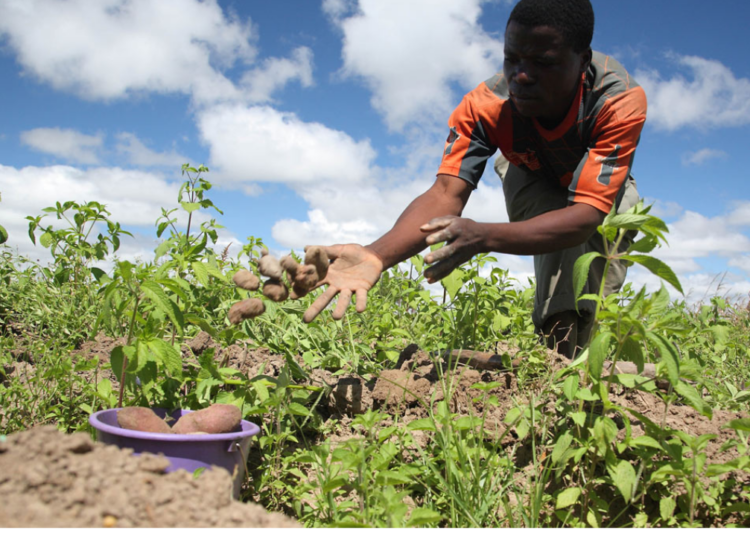Stakeholders have called for an improvement in the agricultural commodity value chains, including addressing the reduction of post-harvest loss (PHL) of perishables, which is fundamental and would have a positive impact on Nigeria and the larger African economy.
They noted that, agriculture is arguably the most important sector in the Nigerian economy, it is a source of raw materials for the Micro, Small and Medium Enterprises, employing 60 per cent of Nigerian’s workforce, including many rural women, and contributing almost 30 per cent of the country’s GDP.
They made this known at the concluded eighth International Agrofood and Plastprintpack Exhibition & Conferences 2023 held in Lagos.
Speaking, the minister of Industry, Trade and Investment, Adeniyi Adebayo, said: “given the global economic disparities, high market requirements in terms of quality standards, increasing competition, constantly changing customer demand, it is paramount for Nigeria to have a robust and innovative strategy for addressing cold chain bottlenecks and to remain globally competitive.”
He noted that the output from this cold chain submit and exhibition is auspicious for the wellbeing of Nigeria and African; with its goal of finding solution to post harvest losses (PHL) in Nigeria and across sub-Saharan Africa, identified as one of the major problems facing our agricultural sector.
Adebayo also said, government is encouraging public-private partnerships to find lasting solutions to cold chain challenges in Nigeria and African trade.
The managing director of the organisers fairtrade Messe, Paul Maerz, highlighted the importance of the Nigerian market, saying, “with €346 million in 2021, Nigeria is the largest investor in food & packaging technology in Africa, and with €165 million in 2021, Nigeria is the second largest importer of plastics technology in Sub-Sahara Africa.”
He added that the enormous population growth from 206 million in 2022 to 411 million in 2050 demands high sustainable investments in Nigeria’s agrofood & plastprintpack industry, saying that, the figures underline the importance of the Nigeria agrofood & plastprintpack market.
The Lagos State commissioner for Agriculture, Abisola Olusanya, said, the collaboration in the agro foods in Nigeria remains low,adding that, the challenge of the agro food sector is the uneasy access to the market.
Also speaking at the event, the president of the Organisation for Technology Advancement of Cold Chain in West Africa (OTACCWA), Mr Alexander Isong lamented that cold chain, as an industry, has seen very little penetration into the economy, limiting its potential to significant revolutionalise agro-tech in Nigeria.
He said: “cold chain has a multiplier effect on the economy which helps a country in delivering on goods and services that are healthy, certified and helps in the storage and transportation of what a country produces on its farms and safe transport of pharmaceutical products to maintain their efficacy and potency.”
To shore up opportunities for more local content during the annual trade show and foster intercontinental collaborations, leading exhibitors, Germany, Italy and Netherlands indicated their readiness to collaborate with Nigeria in eradicating post-harvest losses across sub-Saharan Africa, whilst boosting food security and bolstering agricultural value chains.











